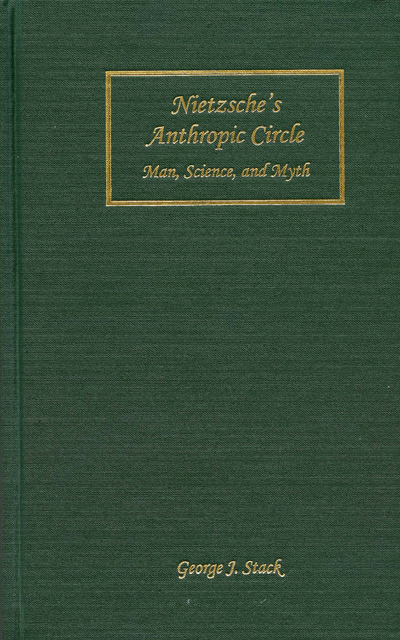Book contents
- Frontmatter
- Dedication
- Contents
- Preface
- Editions and Abbreviations
- 1 Anthropomorphic Projection
- 2 Agnosticism
- 3 A Dynamic Theory of Nature
- 4 Perspectivalism: Knowledge/Interpretation
- 5 Fictionalism in Science
- 6 The Structuralist Perspective
- 7 Evolutionary Epistemology
- 8 Tragic Knowledge and a Will-to-Power Psychology
- 9 The Cosmic Will to Power as Fable
- Notes
- Selected Bibliography
- Index
4 - Perspectivalism: Knowledge/Interpretation
Published online by Cambridge University Press: 23 March 2023
- Frontmatter
- Dedication
- Contents
- Preface
- Editions and Abbreviations
- 1 Anthropomorphic Projection
- 2 Agnosticism
- 3 A Dynamic Theory of Nature
- 4 Perspectivalism: Knowledge/Interpretation
- 5 Fictionalism in Science
- 6 The Structuralist Perspective
- 7 Evolutionary Epistemology
- 8 Tragic Knowledge and a Will-to-Power Psychology
- 9 The Cosmic Will to Power as Fable
- Notes
- Selected Bibliography
- Index
Summary
… that every elevation of man brings with it the overcoming of narrower interpretations; that every strengthening and augmentation of power opens up new perspectives and enjoins believing in new horizons— this runs through my writings.
Nietzsche, NachlassAmong many paradoxical conceptions in Nietzsche's writings, one of the most consistently defended in his theory of perspectivalism. It is central to his epistemic reflections and lies at the heart of many of his fundamental ideas. But although perspectivalism has been analyzed quite often, some aspects of it have not received sufficient attention. What complicates matters is that Nietzsche introduces various levels of perspectival analyses. Moreover, he intermixes perspectivalism as an epistemological method with his own imaginative perspectival interpretation of actuality, a source of a great deal of confusion and of questionable renditions of his thought.
Although Nietzsche's views on various moral or valuational perspectives tend to attract the most attention, they are not the only or the most basic modes of perspectival analysis. Even though he refers often to the variety of values that have been elevated in different cultures and in different periods of history, his own “table of values” is not relativistic. He consistently values what affirms and enhances life, whatever elevates the type “man.” Where we find an ingenious use of relative points of view is in Nietzsche's employment of a variety of conceptual perspectives. These are the foundation for the construction of a global interpretation of the nature of actuality.
The first suggestion of the importance of perspective for understanding, the one that was the model for many subsequent uses of this method, was derived from the hermeneutic problem of deciphering the meaning of texts in philological studies. A text has to be interpreted against a background of general cultural knowledge and in terms of a literary, historical, and valuational context. Thus, to cite one of Nietzsche's insightful exercises, he discerned in Socrates’ attitude toward life a “pessimism” that had only previously been noted by Kierkegaard (though in a somewhat different way). Commenting on Socrates’ words in the Phaedo as he was dying, “Crito, we owe a cock to Asklepios, pray do not forget to pay the debt,” he points out that it was the custom in ancient Greece to offer a rooster to the god of health, Asklepios, after one had recovered from an illness.
- Type
- Chapter
- Information
- Nietzsche's Anthropic CircleMan, Science, and Myth, pp. 60 - 102Publisher: Boydell & BrewerPrint publication year: 2005



